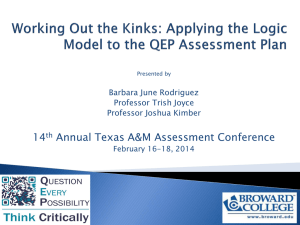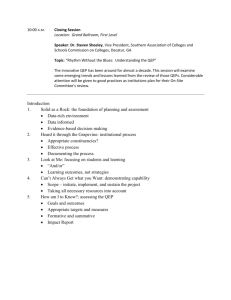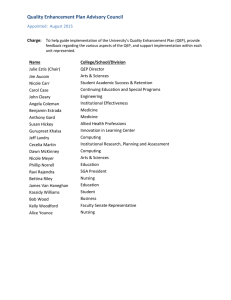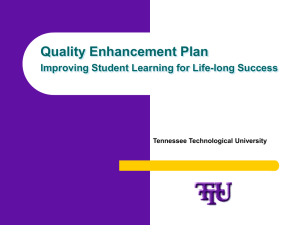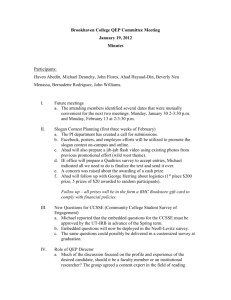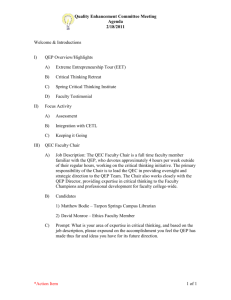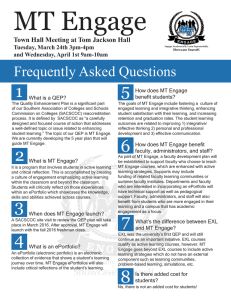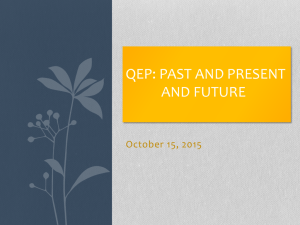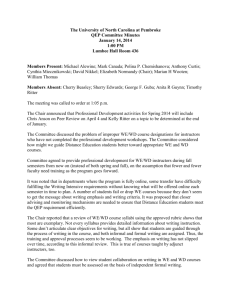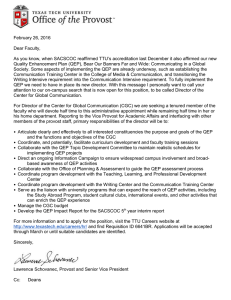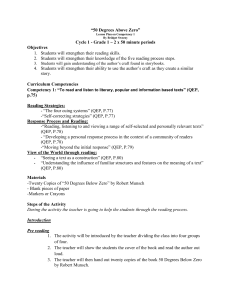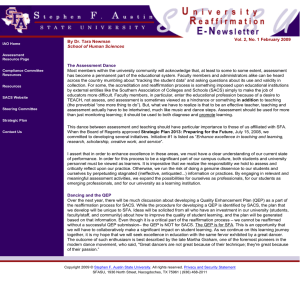QEP_Logic_Model_TexasAM_Assessment_2014
advertisement
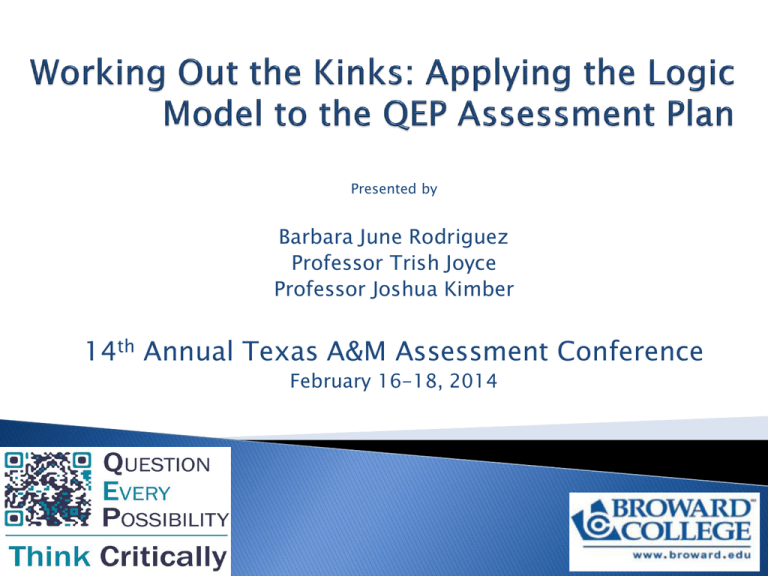
Presented by Barbara June Rodriguez Professor Trish Joyce Professor Joshua Kimber 14th Annual Texas A&M Assessment Conference February 16-18, 2014 By the end of the session, participants will be able to: 1. Apply the logic model to the QEP plan (or any situation/project) 2. Discuss strategies to engage faculty in QEP implementation and assessment development (outputs) 3. Utilize Student Learning Outcomes (SLOs) to enhance critical thinking (outputs) Located in South Florida; 3 campuses and 8 centers Offers associate and baccalaureate degrees Serves nearly 68,000 students annually SACSCOC Onsite Review was October 2013 QEP received no recommendations QEP focus is critical thinking Goal 1: To enhance students’ critical thinking skills Students will be able to: 1. Analyze and interpret relevant information 2. Explain questions, problems, and/or issues 3. Evaluate information to determine credibility of reasoning 4. Generate well-reasoned conclusions Direct Measures 1. California Critical Thinking Skills Test (CCTST) 2. Performance-based tasks developed by faculty mentors/mentees 3. General Education Assessment Results for problem solving competency Indirect Measures 1. Community College Survey of Student Engagement (CCSSE) 2. Community College Faculty Survey of Student Engagement (CCFSSE) Goal 2: To enhance pedagogical practices that focus on critical thinking Faculty will: 1. Participate in targeted professional development and training 2. Develop in-house training modules on critical thinking 3. Incorporate teaching and learning strategies that focus on critical thinking skills 4. Produce a portfolio with revised syllabi and assignments that emphasize critical thinking Direct Measures 1. Faculty Portfolios 2. Resource Repository 3. Course Syllabi Indirect Measures 1. Community College Survey of Student Engagement (CCSSE) 2. Community College Faculty Survey of Student Engagement (CCFSSE) 3. Number of in-house training modules 4. Number and percentage of faculty trained 5. Number and percentage of faculty who teach CT enhanced courses Allows precise communication about the purpose of a project, its components, and activities Describes logical linkages among resources, activities, outputs, audiences, and outcomes Functions as a graphical depiction of processes in real life Illustrates a sequence of cause-and-effect relationships Paul McCawley, University of Idaho University of Wisconsin Each activity will require working as a team and time will be permitted to share ideas: Activity #1: Engage faculty using critical thinking and BCs SLOs as an example case Activity #2: Questions & Reflections Broward College. Question Every Possibility Think Critically: Quality Enhancement Plan. SACSCOC Onsite Review, October 2013. Broward College's QEP McCawley, P.F. The Logic Model for Program Planning and Evaluation Logic Model W.K. Kellogg Foundation Logic Model Development Guide Development Guide
